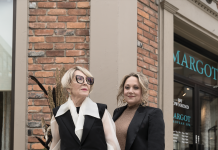
As the novel coronavirus continues to cast fear and uncertainty across the United States, Dr. Sanjay Gupta has become one of the country’s preeminent voices of medical knowledge. A neurosurgeon and CNN’s chief medical correspondent, Gupta is often called on to cut through the endless confusion and misinformation about COVID-19 and help shed light on an illness that still baffles top scientists.
But long before he became America’s doctor, Gupta was a precocious student at Novi High School. His parents, immigrants from India and Pakistan, were engineers for Ford Motor Co. After joining CNN’s medical news team, he produced Emmy award-winning work on the health ramifications of Hurricane Katrina and the 2010 Haiti earthquake.
Now, Gupta — a 50-year-old father of three daughters who lives with his wife in Atlanta — finds himself at the crossroads of an election season and a highly politicized global pandemic. He wakes up at 4:30 every morning to stay on top of the COVID-19 information avalanche, and his head doesn’t hit the pillow until 11:30 at night. Gupta talked to Hour Detroit about Michigan’s response to COVID-19, the country’s botched response to the pandemic, and his battle to muffle the noise of science deniers.
Hour Detroit: How often do you make it back here?
Sanjay Gupta: My brother, his wife, and two daughters live there, and pre-COVID we were coming back often. We have not been there since March. I’ve lived in places all over the country. I still consider Michigan home.
How would you rate the state’s COVID-19 response?
I think Michigan did a pretty good job in terms of acting early and fairly decisively. As things open up and schools open again, you’re going to see an increase in cases. As Gov. Whitmer has talked about, you have to make sure you have adequate testing and triggers to quickly pull back on something, whether it be schools or public buildings.
How has CNN’s being dubbed “fake news” affected you?
As a general rule, we stick to the medical science in our reporting. There are people out there who will always take the opposite point of view. And there are some worthy debates and discussions that should be had. With this particular story of the coronavirus, I think the stakes are higher. We have to make real-time decisions, and it’s very important that stories are put out there accurately.
What’s it like, as a medical doctor, to have to report on people in power who contradict top scientists?
I see myself as a doctor first. It’s a luxury being a science-based journalist and having objective data upon which to report. This particular virus is a novel virus, so we’ve learned a lot together. When there are facts that need to be checked and things that are not being presented honestly, we have to do our job.
How will the pandemic affect things politically?
It’s impossible to disentangle things from politics these days. Regardless of whether you’re a Democrat or Republican, this is about your health and your family’s health. It still boggles my mind that people don’t think this is real. There’s no question we’ve had a bungled response to the coronavirus, and that’s not a political statement. It didn’t have to be this way. We should have done better, and we still need to do better.
Did you think it was a good idea for CNN host Chris Cuomo to continue to appear on air while fighting the virus?
He was diagnosed in the earlier days when there were a lot of people who still had no idea what this was like. As much as we talked about it in the abstract sense, people didn’t really know what to make of it. So Chris, because he’s a natural storyteller, was able to bring that to light for people and explain what the symptoms were like.
What has been the most difficult part of covering the pandemic?
It’s a disease we knew nothing about eight or nine months ago. By the end of the year, it will be the third leading cause of death. I’ve never experienced anything like this. It’s enormous, and people sort of don’t get the gravity of that. We will all be fundamentally changed.
On a different note, you initially were not a proponent of medical marijuana, but have switched positions. Why?
Before, I wasn’t convinced at all that it had a role medically, but what I realized over time was that a vast majority of studies in the United States were designed to find harm in it. I had the luxury of looking at different countries and going to labs in the United States doing research that was not funded by the government. It was a two-year investigation for me to really change my mind on this.
|
|
|









